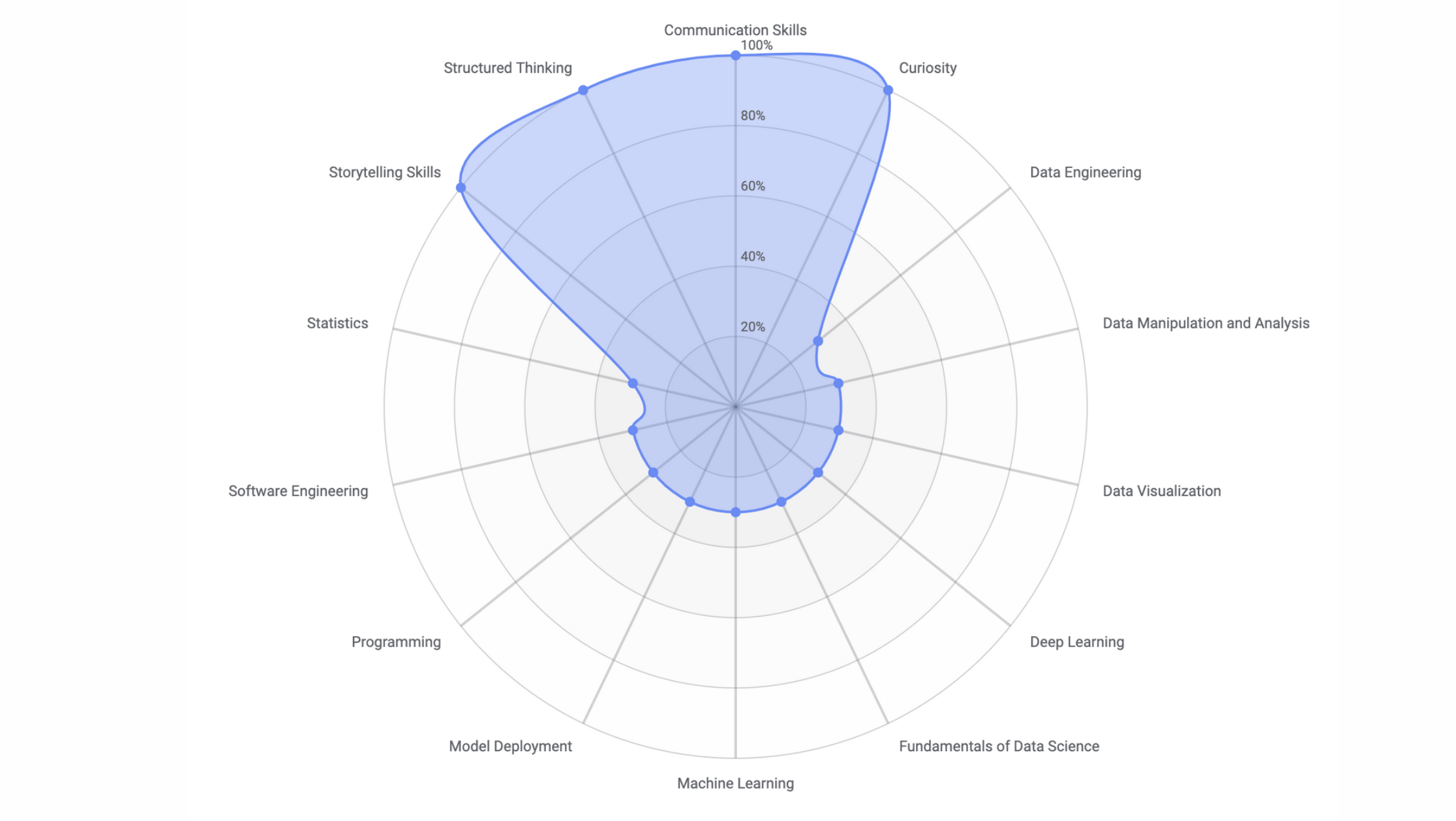How to Build a Data Science Team
Before you build your data science team, Mark Palmer invites you to take a closer look at the essential skills the group needs. (Spoiler: They may not be what you think.)

Are you building a data science team? It’s helpful to remember that it’s a lot like building a house.
You start by considering architecture and location. Only much later in the process do you hire a plumber, the specialist arguably most important to your home's day-to-day functioning.
So, when seeking to build a data science team, why do so many companies hire the techies—highly specialized data scientists—first?
It’s a common practice worth questioning.
That’s what I did in my Techno-Sapien blog series on the topic of building a data science team in 2021, starting with the initial post on which this article is based.
For inspiration, I looked to the team-building framework created by the late psychologist Bruce Tuckman, who became famous for his group dynamics research. You may already be familiar with his model describing the path teams take toward high performance in 1965.
Basically, Tuckman broke that team formation journey into four stages:
- Forming
- Storming
- Norming
- Performing
If, as we start to consider what happens when one builds a data science team, we zero in on the “Forming” stage, we quickly realize that we need to ask a rather fundamental question about whom we want to hire.
What skills do you need to build your data science team?
Data science requires both basic and wide-ranging skills. Unicorns and purple squirrels aside, most data scientists don’t have all of these skills and abilities, but many talented people have several of them.
In a 2020 Towards Data Science piece, Rashi Desai identified the top 10 skills most needed for a data science career. This list aligns pretty well with what most hiring managers and HR recruiters typically seek, including evidence of experience with:
- Probability and statistics
- Multivariate calculus and linear algebra
- Programming, packages, and software
- Data wrangling
- Database management
- Data visualization
- Machine learning/deep learning
- Cloud computing
- Microsoft Excel
- DevOps
Yet the most important skills—storytelling, structured thinking, and curiosity—are glaringly absent.
And although they may be harder to see on a resume or LinkedIn profile, those seemingly “soft” skills are the most essential ones for long-term team success.
What to Look for When Forming a Data Science Team
Contrary to common belief, the first job of a data science team isn’t to be scientific. It’s to be humanistic. The goal should be about forming questions, not finding answers. About promoting curiosity, not certainty.
So, it’s wise to hire your team by seeking talent with strong curiosity, communication, storytelling, and structured thinking skills—not strictly technical acumen.
To give you a visual, this spider chart shows the skills needed to form a data science team. Listening and curiosity rank high; merely basic technical skills are needed first.

Many hiring managers get this part wrong. It’s sadly common for executives to hire Python coders to answer questions that don’t matter. Indeed, sometimes the absence of programmers may force the right things to happen. When decision-makers and domain experts lead projects, rather than coders, the bridge between data-derived insights and business decisions is easier to cross.
Building Your Data Team the Right Way
Jeff McMillan, Chief Analytics and Data Officer of Wealth Management at Morgan Stanley, is a champion of this humanist-centered team building philosophy. As he shared once in a Dataiku video, McMillan intentionally built his data science team around human connection and curiosity.
For him, good communication coupled with good programming is the lynchpin of good data science.
It’s worth noting that McMillan maps his teams to the company’s overall business mission, not technical skill. He also embeds data scientists within complex teams rather than siloing them off into a single, centralized data group.
Individual members on complex teams bring their own unique skills to their work: Joe knows portfolio management, Simone knows annuities, and Colin knows ETFs, etc. As they work alongside one another, they combine their collective hard and soft skills to develop ideas, grow momentum, and spark innovation.
As McMillan reminds us in the Dataiku video, “With data science, the single most powerful driver of client satisfaction is a phone call.” His point: humanity is crucial to interaction, engagement, and productivity. If you follow McMillan's lead, you’ll form your data science team in ways that harness and leverage curiosity, communication, storytelling, and structured thinking.
To sum up, remember this when building your data science team: You want to get the right questions, mindset, and skills in place first—much as you’d want to get the architecture, site, and vibe right for your dream home long before calling in the plumber.
To learn how Correlation One works with corporations to build diverse, high-performing data and analytics orgs—and unlock human potential at scale, visit our enterprise page now.
About the Author
Mark Palmer is the SVP and General Manager of data analytics products for TIBCO. He has responsibility for business intelligence, data science, streaming analytics, data virtualization, and metadata management products. He’s also a member of the Correlation One Advisory Board and the recipient of numerous awards in technology innovation. Connect with Mark on LinkedIn, or follow his blog, Techno-Sapien.





